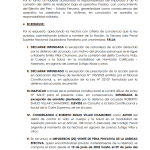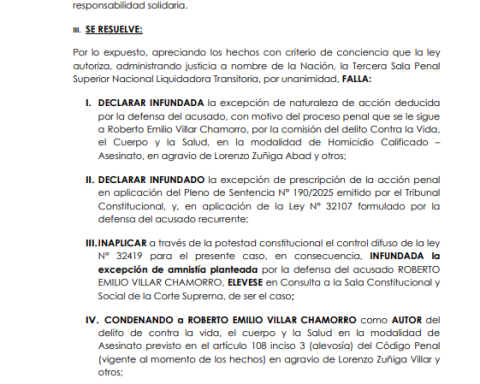The National Commission for Evaluation and Productivity (CNEP) prepared the study “Efficiency in the Management of Primary Health Care (PHC)”, delivered this Thursday to the Government. The report includes 56 findings that characterize PHC situations in Chile and 36 recommendations to improve their attributes and performance.
The president of the CNEP, Raphael Bergoeingexplained that the objective of this study, which was mandated by the Government to the CNEP in September 2020, and ended in September 2021, is to improve the prevention capacity of PHC, seeking cost-effective measures that support the work of the equipment of the establishments, allowing to expand coverage and improve the timeliness and quality of care more efficiently.
Findings
The executive secretary of the CNEP, Rodrigo Krell, explained that, throughout this study, the CNEP verified a set of findings that made it possible to identify the state of PHC in Chile. Specifically, the document shows and analyzes the most relevant gaps in local PHC, in addition to proposing measures to address them.
In this line, the document indicates that PHC in Chile, along with presenting important gaps in the technological field (ICT), also requires increasing the number of medical professionals by 77% if it wants to close the gap with respect to references.
In addition, currently, the coverage of the beneficiary population reaches 50%, while reference systems present figures above 65%. Also, the estimated infrastructure gap is US$2,000 million, considering the improvement of the current universe of establishments, such as the development of new infrastructure.
Today Fonasa has close to 15 million beneficiaries, who have guaranteed access to PHC, once enrolled in a primary care facility. However, figures show that only 13.5 million are enrolled in PHC. Of these, 6 million attend exclusively in the APS and 1.5 million also use the Free Choice Modality (MLE). Thus, the coverage rate is 50%, while international references have rates greater than 65%.
It is also concluded that there are about 6 million people who, while enrolled in the PHC, do not register care either at the primary level or via MLE. At the community level, most coverage is between 40 and 60%.
In turn, he explained that “regarding the HR deficit, an average of 1 PHC doctor per 2,600 registered people is estimated at the community level, with communities having 1 doctor per 4,000 registered people, and others with 1 doctor per 1,900, while best practices they suggest reasons around 1 doctor per 1500 people”, he assured.
“Using data from the OECD, it is estimated that closing the gap in medical professionals at the national level may take about 15 years. This situation is aggravated in the context of PHC, considering an OECD study (2020) that shows that in Chile the proportion of the medical supply represented by PHC specialists (family doctors) has been reduced by 20% between 2000 and 2017 ”, he explained.
The executive secretary also explained that coverage capacity is also restricted by infrastructure gaps that limit access and quality.
“The CNEP estimates that about 5.4 million beneficiaries have limited access. For example, there are 201 establishments (in urban areas) whose capacity is exceeded, in regions (Araucanía, Magallanes, Los Lagos, Valparaíso and Ñúble) about 20% of the population lives 12-60 km from a clinic, and the establishment The closest one for 2 million people is a health post, whose equipment is normally not enough to cover the required services”, he pointed out.
He added that the challenge of closing access gaps is not easy to tackle in the short term. “Public information shows that a Family Health Center (CESFAM) takes an average of 3.7 years to build, and costs over 3 million dollars.
“Also, through information from the Public Market, it was identified that, in the case of projects in the bidding process as of March 2022, only 1 of the 28 has not had any type of setback,” he added.
“Along with this, it must be considered that, once the work has been delivered, it is necessary to include equipment and carry out adequate maintenance of the establishment. The latter currently depends largely on the financial capacity of each municipality,” he added.
recommendations
Based on the identified findings, interviews, literature, national and international good practices, among others, the CNEP proposed 36 recommendations, prioritizing some of them in the short term based on feasibility, costs, time frames and estimated impacts.
Among the recommendations, is to implement at the national level the care strategy called Teletriage.
This is a care strategy implemented since the beginning of 2021 in 12 PHC establishments, which seeks to improve and bring care closer to PHC users through the use of ICT, redesign of care processes, training of staff skills and abilities. .
One of its functions is to enable prioritization in the request for appointments in the PHC based on clinical criteria, which allows directing resources to those who need them most.
The CNEP also recommends that in areas where there is a large amount of floating population, especially in work areas, simple tests or exams be carried out to identify asymptomatic people who are unaware of their condition, and thus they can benefit from early intervention (Screening).
There is evidence that through screening actions, a health impact is generated (more people know they have a CNCD), the coverage rate increases (27pp in certain groups) and savings are generated for the person as well as for the health system (6% in the case of the EU), all this through the early detection of diseases and/or conditions.


















